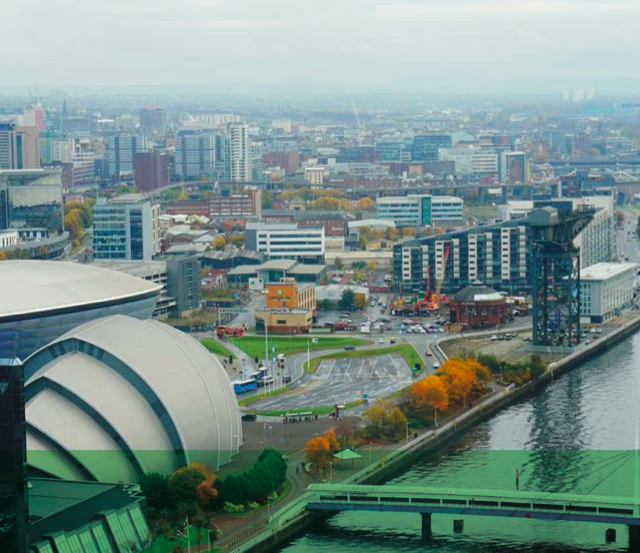Digital technologies play a crucial role in the implementation of economically and socially acceptable climate protection measures. A new report produced by tech company Schneider Electric in collaboration with CNBC Catalyst provides concrete examples of the enormous environmental and economic potential that can be realized through the means of IoT-based digitalization. Only recently, Schneider Electric was awarded the independent German Sustainability Award in the “Climate” category for the development of its hardware and software solutions aimed at sustainable business.
Case studies for sustainable business
The report, produced by CNBC Catalyst and Schneider Electric, provides insights into global case studies that have used digital technologies to reduce greenhouse gas emissions, shift to renewable energy, or make supply chains more transparent and sustainable. Among the most notable findings:
…how IBM was able to use artificial intelligence and blockchain-based solutions to establish a more transparent and lower-carbon supply chain.
…how Hong Kong and China-based real estate company Swire Properties managed to cut greenhouse gas emissions by 19 percent.
…how global engineering and services company Jacobs is helping the City of London analyze billions of data points to set up a transportation system in which 80 percent of trips are made by CO2-free modes of transport.
…how Tata Power, a company specializing in solar energy services, is enabling its customers in now 90 Indian cities to use smart monitoring and management systems to generate energy sustainably while saving money.
Other case studies mentioned in the report include Equinix, IHG Hotels & Resorts, Singapore Management University and the University of Oxford. With its holistic hardware and software solutions combined with specialized consulting services,Schneider Electric has played a leading role in implementing energy efficiency and sustainability measures in all of these cases. As the example of Swire Properties shows, this is always about the long term. Specifically, targets were jointly set here with regard to reducing CO2 emissions, which are now being implemented step by step through appropriate measures and investments — for example, by continuously increasing the data transparency of the managed properties through the use of energy measuring devices.
Climate protection cannot wait
Particularly against the backdrop of the results of the recent UN Climate Change Conference in Glasgow (COP26) and the urgent appeal made there for climate protection measures to be accelerated and intensified, it is clear that only more sustainable management, responsible use of finite resources and drastic reductions in global CO2 emissions can preserve previous ways of living and doing business in the long term.
“The results of COP26 underline how necessary it is for companies to think sustainably and take measures for greater energy efficiency. Over the next decade, digital technologies in particular will make more sustainable business possible. The report now available from CNBC and Schneider Electric is strong evidence of this. With practical application examples, it shows that it would already be possible to save up to 70 percent of greenhouse gas emissions today with existing, proven and competitive technologies alone. Nothing less than the future of our planet depends on it.”
- Jean-Pascal Tricoire, Chairman and CEO
More sustainably successful
As the examples in the new report show, the possibilities of IoT-based digitalization make sustainability a value and an opportunity from a business perspective. Accordingly, sustainable business, lower CO2 emissions and the use of green energies are not just unwelcome obligations imposed on business by society and politics. With the help of holistic networking and intelligent software, a digitalization approach guided by sustainability considerations leads above all to considerable economic advantages. In other words, greater reliability, flexibility and energy efficiency not only have an impact on the ecological footprint, but also make themselves felt in operating and investment costs.

















